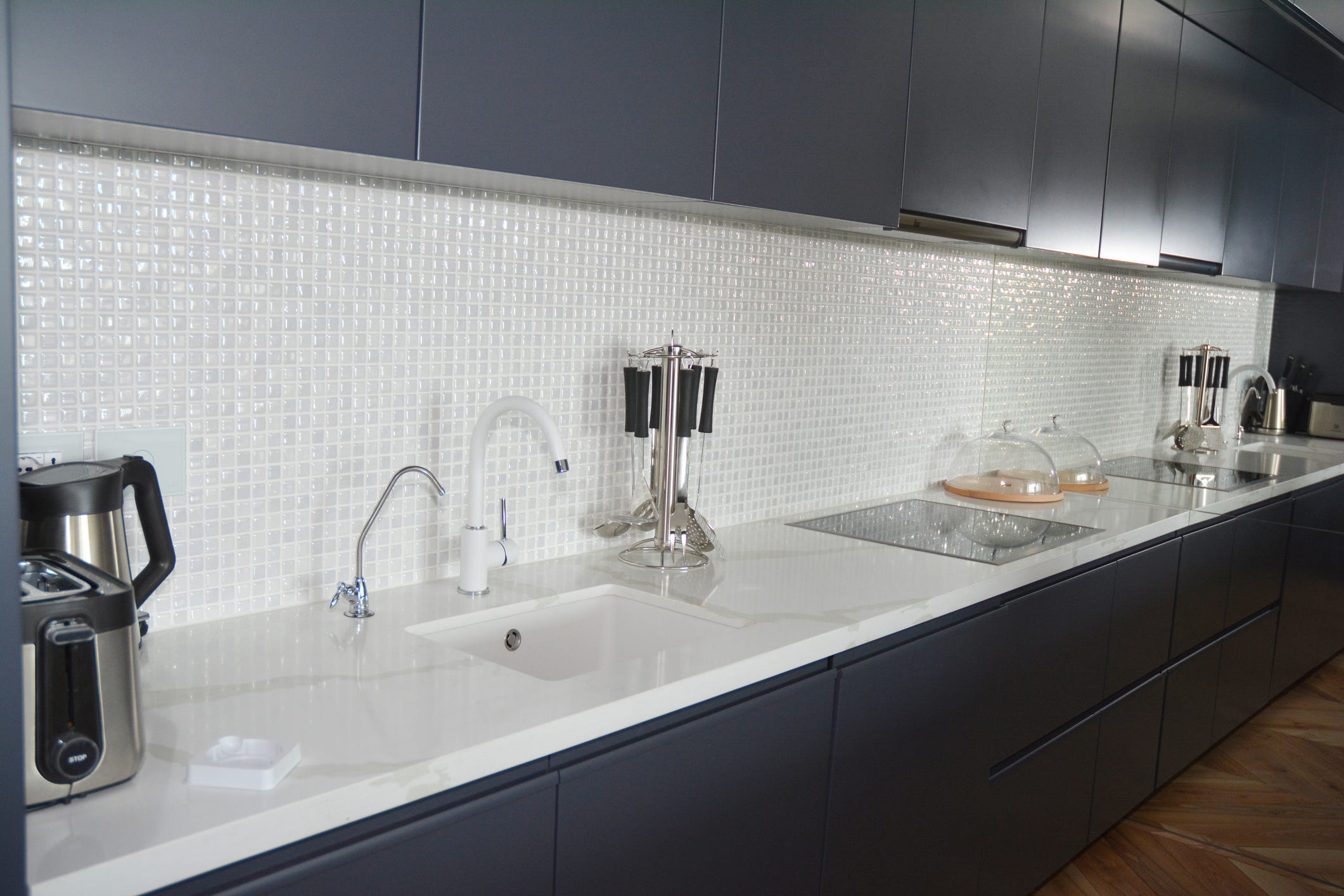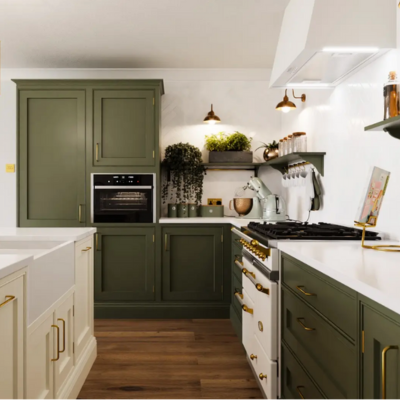You don’t become eco-friendly overnight. It’s a steady process that requires many small, manageable changes, and the kitchen is an especially tricky place to start.
As we cook and clean our homes, we may not realise how many single-use items we toss away without thinking. It’s these items that will end up in landfills, degrading over hundreds, potentially thousands of years.
Luckily, Rehome knows a thing or two about sustainable kitchen swaps. As recipients of the ‘Most Impactful Business’ at the Eco-Innovation Awards, we’ve saved over 6,000 trees by selling pre-loved kitchens with plenty of life in them.
But if you’re ready for some smaller changes, try our favourite sustainable kitchen swaps.
Smarter food storage
We’ve all been guilty of reaching for 99p plastic containers: they’re quick, cheap, and you get lots of them in a pack. But did you know that these boxes are made using fossil fuels?
99% of plastic is made from harmful chemicals, like ethane, which has the potential to leech into our food and drink. While low levels of plastic consumption aren’t considered harmful to our health, there are much better options for eco-conscious cooks.
Plus, once these go in the bin, they’ll likely end up in a landfill (where they could take up to 500 years to decompose). So, why not ditch plastic for more sustainable solutions, like glass or stainless steel containers?
Glass is much better for the environment. It’s non-porous, which means it won’t absorb smells or bacteria (and your food will be better preserved). It’s also reusable, heat-resistant, and easy to clean. Steel is similarly recyclable and offers unbeatable strength.
It’s also a non-reactive material, just like glass, so it won’t leak chemicals into your food. Steel may be more expensive, but that’s because it keeps its good looks over time! It’s corrosion and rust-resistant, so you get the most use for your money.
Other inventive options include beeswax wraps. Crafted from organic cotton infused with beeswax, these pliable wraps can adhere to various surfaces, like half-cut fruit and veg you want to preserve in the fridge.
Despite being strong, beeswax wraps are breathable and will help keep food fresh. With proper care, you can reuse them for up to a year! Or, there are reusable silicone lids. These synthetic rubber lids preserve food by creating a stretched, airtight seal over containers.


Greener cleaning habits
Often, we don’t realise just how many single-use items we own until we stop and take a look around. But once you start making eco-conscious choices, it’s hard to stop! Cleaning supplies, especially, are an area where many of us can do better.
Switching to biodegradable sponges and natural dish brushes can be a great starting point. Conventional sponges are typically made from treated, synthetic materials that don’t decompose.
However, biodegradable options, such as those made from plant cellulose, coconut coir, or loofah, break down naturally after disposal: a win for homes and the environment!
If you’re using plastic dish brushes, why not swap them out for natural dish brushes with wooden handles and plant-based bristles? Kitchen roll is another area where we can switch single-use sheets for washable cloths.
Dishcloths made from cellulose and cotton are reusable, highly absorbent, and can be washed multiple times before they need replacing!
Waste reduction made easy
Does your kitchen produce a lot of food waste? Whether it’s leftovers from family meals or recipe offcuts, if you haven’t started a compost now, today is the time!
By collecting items like vegetable peelings, fruit cores, coffee grounds, and eggshells, and placing them in a compost bin, you can transform organic waste into nutrient-rich compost for your garden.
If this strategy doesn’t work for you, you can start purchasing more dry goods in bulk. Items like rice, pasta, lentils, and cereals often come in excessive packaging when bought in standard quantities.
Buying these products in larger amounts will reduce how often you need to get rid of packaging. Or, you could start opting for items packaged in widely recyclable materials like glass, paper, or certain plastics. It’s really that simple!


Energy & water efficiency
Sometimes, it’s not about what you use, but how you use it.
If it’s been a while since you updated your kitchen appliances (around 7–10 years), you may be using fridges, freezers, or ovens with poor energy efficiency ratings. In the UK, appliances are rated from A to G, with A being the most efficient.
According to energy officials like Certas, homeowners could save around £360 over 17 years by purchasing an A-rated fridge freezer over an E-rated model! So, why not make the much-needed switch?
You could also install tap aerators to conserve water. These devices attach to the end of taps and mix air with the water flow to maintain pressure whilst reducing water usage. With immediate savings on water bills, you may be able to recoup your initial investment in a few weeks!
Shop for pre-loved kitchens with Rehome!
We hope our sustainable kitchen swaps have given you plenty of useful eco-info.
If you’re ready to go the extra mile, why not shop for second-hand kitchens with Rehome? The ultimate renovation solution, our listings are full of offerings from luxury brands like Hacker, Martin Moore and Nobilia.
Live in possible today with Rehome.










